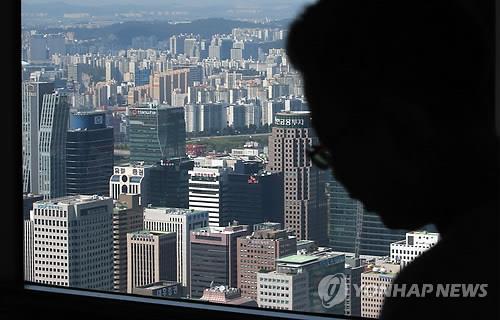A majority of companies estimate increased corporate taxes this year from last year and expect to pay more when new tax codes become effective in 2017, a survey said Wednesday.
Responses drawn by the Federation of Korean Industries, in its survey of 200 company officials in charge of tax filings, said 61.5 percent reported higher corporate taxes this year than last. Another 67 percent said they see taxes rising next year under new codes that reduced allowed write-offs for carryover business losses, R&D activities, energy conservation and other categories that so far had been given tax deductions.

Local companies are staunchly arguing against suggestions that the government hike corporate tax rates to bankroll state policies for welfare and economic resuscitation. According to the Ministry of Strategy and Finance, the government collected 45 trillion won ($39.47 billion) from companies last year, up 2.3 trillion won from the previous year. Corporate levy for the months of January-February this year was 53 percent higher than the same period of 2015.
The FKI said while the tax law amendments in 2008 appeared to help the business community by lowering the maximum corporate tax rate by 3 percentage points, subsequent code changes have actually increased the tax burden.
The lowest tax rate was raised twice since then to 17 percent from 14 percent, and write-offs for temporary investments and spending for job creation were eliminated altogether, the FKI said.
Tax deductions for facility investment fell from 10 percent in 2011 to the current 1 percent, it said.
"Some demand that corporate tax rate be restored back to 25 percent from the current 22 percent, but the feel of the tax load for companies has become heavier than before the rate decrease in 2008," Song Won-keun, head of the economic research division at the FKI, said. "Corporate tax hike runs contrary to the world trend, and it will undercut the firms' competitiveness and make economic revival more difficult." (Yonhap)




![[Graphic News] Beer the most favored alcoholic drink by Koreans](http://res.heraldm.com/phpwas/restmb_idxmake.php?idx=644&simg=/content/image/2024/05/09/20240509050765_0.gif&u=)








![[Weekender] Pet food makers bet big on ‘recession-free’ pet food market](http://res.heraldm.com/phpwas/restmb_idxmake.php?idx=652&simg=/content/image/2024/05/10/20240510050754_0.jpg&u=20240511163252)




![[What to play] Musical tributes to family in the month of family](http://res.heraldm.com/phpwas/restmb_idxmake.php?idx=642&simg=/content/image/2024/05/09/20240509050795_0.jpg&u=)